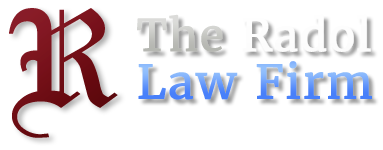When an individual has to file for bankruptcy, they should be aware of the options that are available to them. Contrary to popular belief, filing for bankruptcy has the potential to lead people to better financial situations than they had previously. The two different types of bankruptcy an individual can file for are Chapter 7 and Chapter 13 Bankruptcy.
Chapter 7 Bankruptcy
Chapter 7 Bankruptcy works to allow an individual a fresh start to their finances. In order to file for Chapter 7, the individual’s income must be below the average income within the county they live in. This type of bankruptcy is called a “liquidation bankruptcy” because some assets may have to be sold in order to pay off debts. Even so, the individual is allowed to keep any property that is considered exempt. Such belongings may include your house, household furnishes, vehicles, and more. In addition to this, Chapter 7 Bankruptcy discharges most debts. This means you may not have to pay credit card debt, personal debt, medical bills, automobile repossessions, and foreclosures.
Certain debts are not forgiven under Chapter 7 Bankruptcy. This may include:
- Spousal and child support
- Debts as a result of fraud or dishonesty
- Civil Judgements for intentional torts
- Federal and State Income Taxes
- Payroll and sales taxes
- Majority of student loans
Chapter 13 Bankruptcy
Chapter 13 Bankruptcy is also known as “reorganization bankruptcy.” This allows an individual to keep their property while setting up a payment plan to repay their debts. Doing so allows the individual to pay back a portion of your debts over the course of 3-5 years. This type of bankruptcy allows you to catch up on payments over time without losing your possessions. Once the plan is completed, the outstanding debt is discharged. In order to be eligible for Chapter 13 Bankruptcy, you must have a steady income to be able to continue these payments.
Certain debts are not be forgiven under Chapter 13 Bankruptcy. These debts may include:
- Spousal and child support
- Home mortgages
- Student loans
- Criminal restitution
- Outstanding payments for injuries or death of another
Automatic Stay
When an individual files for bankruptcy, the Bankruptcy Court enforces what is known as the “Automatic Stay.” The Automatic Stay forbids any creditors from collection activities. This gives individuals who are in debt some breathing room to pay back what they owe. This may include lawsuits, collection calls/letters, bank restraints, foreclosures or repossessions. Benefits of the Automatic Stay are:
- It is filed immediately
- Collectors cannot pursue debts
- Prevents harassment
- Gives you room to breathe while recovering stability
Contact our Firm
If you or a family member is considering filing for bankruptcy and need the help of a skilled attorney, contact The Radol Law Firm today.
Before taking any sort of legal action, it is important to discuss your legal matter with an experienced attorney. Contact The Radol Law Firm to discuss any divorce and family law matters you may be faced with.
